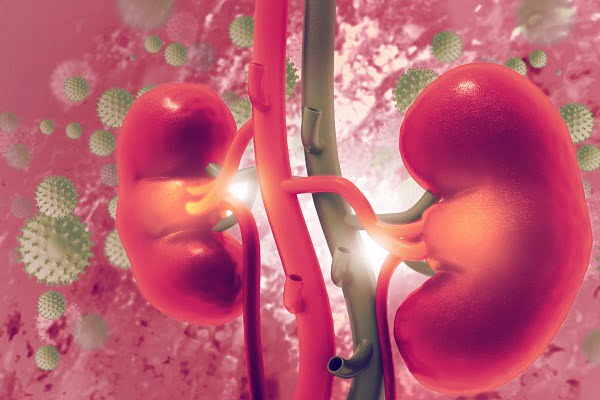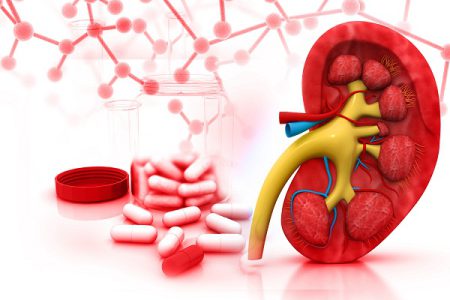Kidney Cancer Stages (Renal Cell Carcinoma Staging)
- Updated on: Jul 8, 2024
- 3 min Read
- Published on Apr 20, 2021

What are the different stages of kidney cancer (grades of kidney cancer)?
After you are diagnosed with kidney cancer, your doctors will find out the stage and the grade of the cancer. This will help them understand the most suitable treatment for your condition.
The stage of a cancer defines the size of the cancer and whether it has spread to nearby organs or tissues and lymph nodes. The grade of a tumour also help the doctor understand about the behavior of cancer cells. It tells whether the cancer cells growing slowly or rapidly.
Kidney cancer staging system
There are two main staging systems:
- TNM system
- number staging system
Doctors use the TNM staging system to describe the stage of the cancer. It tells the doctors about the spread of the tumor. It answers questions such as:
- How far the tumour has grown into the kidney?
- Whether it has spread into nearby lymph nodes or tissues or organs?
- Whether it has spread to distant organs?
- How quickly the cancer may grow?
The number staging system tells how far the kidney cancer might have spread on a numbering scale of 1–4.
Number stages of kidney cancer
Stage 1
The cancer is less than 7cm across and is completely inside the kidney.
Stage 2
The cancer is more than 7cm across but is still completely inside the kidney.
Stage 3
The cancer has grown into the adrenal gland or one of the major veins nearby. No more than one nearby lymph node contains cancer cells.
Stage 4
The cancer has grown into the surrounding tissues. More than one lymph node contains cancer cells or the cancer has spread to another part of the body. This is called metastatic cancer and the process is called metastasis.
TNM stages of kidney cancer
TNM staging system refers to – Tumour, Node, Metastasis.
- T describes the size of the tumour
- N tells whether the cancer cells are present in the lymph nodes
- M tells if the cancer has spread to a different part of the body other than kidney
T stages
There are 5 main T stages in kidney cancer, as follows:
- T0: It means there is no tumour in the kidney
- T1: It means the tumour is no more than 7cm across and is completely inside the kidney.
- T2: It means the tumour is more than 7cm in size but is still completely inside the kidney.
- T3: It means the cancer has spread outside the kidney to the adrenal gland or other tissues nearby the kidney. The cancer might be growing into the fat around the kidney or into a major vein such as the vena cava or renal vein that is close to the kidney. But the cancer cells are not growing beyond the outer covering of the kidney (called capsule).
- T4: It is the stage in which the cancer cells have spread far from the tissues around the kidney. The cancer may have spread outside the capsule that surrounds the kidney. It may have grown into the adrenal gland.
Sometimes two more stages are used by doctors:
- T1a: It means the tumour that is less than 4cm in size.
- T1b: It means the kidney tumour is between 4 and 7cm in size.
N stages
The N stage suggests if the cancer cells have spread to the surrounding lymph nodes. Lymph nodes are a network of glands that are present throughout the body.
There are 3 N stages as follows:
- N0: It means no cancer is present in any lymph nodes.
- N1: It means the cancer has spread to one surrounding lymph node only.
- N2: It means the cancer has spread to more than one nearby lymph node.
The lymph nodes that are closest to the kidney are paraaortic, renal hilar and caval lymph nodes. These are affected by the kidney cancer relatively early.
Grading of the kidney cancer cells
Grading is about the appearance of the cancer cells under the microscope. The grade gives an idea of how the cancer cells may behave.
Doctors want to understand the stage of your kidney cancer. This gives them an idea of how quickly your cancer may grow and spread to other tissues, organs or parts in the body.
Doctors study the cancer cells under a microscope and compare them to the normal cells. If they appear significantly different, they consider the cancer of a higher grade which can potentially grow relatively fast.
Fuhrman system is most commonly used grading system for kidney cancer. It ranges from 1–4. The number 4 represents more abnormal cells and 1 represents the least abnormal cells.
A grade 1 cancer is usually one that is growing slow. It is less likely to spread compared to a higher grade cancer.












